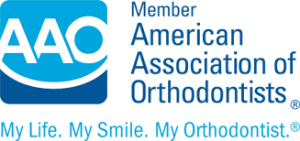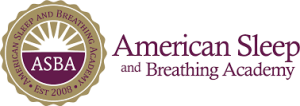[bg_faq_start]
Q: My 7-year-old child snores and I took her to a pediatrician who referred me to an ENT and orthodontist. I was curious how an orthodontist may help a child that snores?
A. When your little one eagerly goes to bed, to get to sleep so Santa can come, will they be snoring?
7-10% of children snore every night. In some cases, children who snore are perfectly healthy. They will sleep just as well and develop the same as children who do not snore.[bg_faq_end]
There is a range of snoring from simple to severe. Severe snoring is found in about 2% of children. Children that snort, gasp, struggle to breathe (suck in their chest) while snoring may have Obstructive Sleep Apnea Syndrome (OSAS), a common sleep disorder.
OSA signs and symptoms in children:
- Sleeps in an unusual position, with head off the bed or propped up with many pillows
- Snores loudly and often and sleeps restlessly
- Stops breathing for very short periods during the night
- Snorts, gasps or completely wakes up after a pause in breathing
- Sweats heavily during sleep
- Has behavior problems at school, day care or at home
- Is difficult to wake up even after a long night of sleep
- Has headaches during the day, especially in the morning
- Is often grumpy, aggressive or simply “cranky”
- Falls asleep or daydreams in school or at home
- Has attention-deficit/hyperactivity disorder (ADHD)
- Has not outgrown bedwetting (enuresis) at the typical age (especially if snoring is present)
Some of these signs are very much like those that are found in children with ADHD. The most common signs of sleep apnea that are shared by ADHD are: trouble concentrating, hyperactivity, and nervousness. In fact, some children are thought to have ADHD when in reality they are suffering from OSA. These two problems can also occur together in the same child. Sleep apnea can even make the ADHD symptoms worse, and if not detected and treated, can lead to problems at school, delayed growth and heart failure.
Sleep Apnea is often caused by enlarged tonsils/adenoids and/or malformed jaws. In our Orthodontic Office, if your child has a history of snoring, you will be asked to fill out a Pediatric Sleep questionnaire. For further diagnosis, 3D digital X-rays (that have zero to minimal radiation) of the jaws are taken and, if needed, a Home Sleep test is recommended that can be done in the comfort of your child’s home/ bed. Based on the findings, a treatment plan is recommended that may include simple, yet life-altering, jaw modifying orthodontic measures to minimize any negative impact on the airway.
The Orthodontic evaluation for the Sleep Disorder is done at No Charge and does not need a referral.







